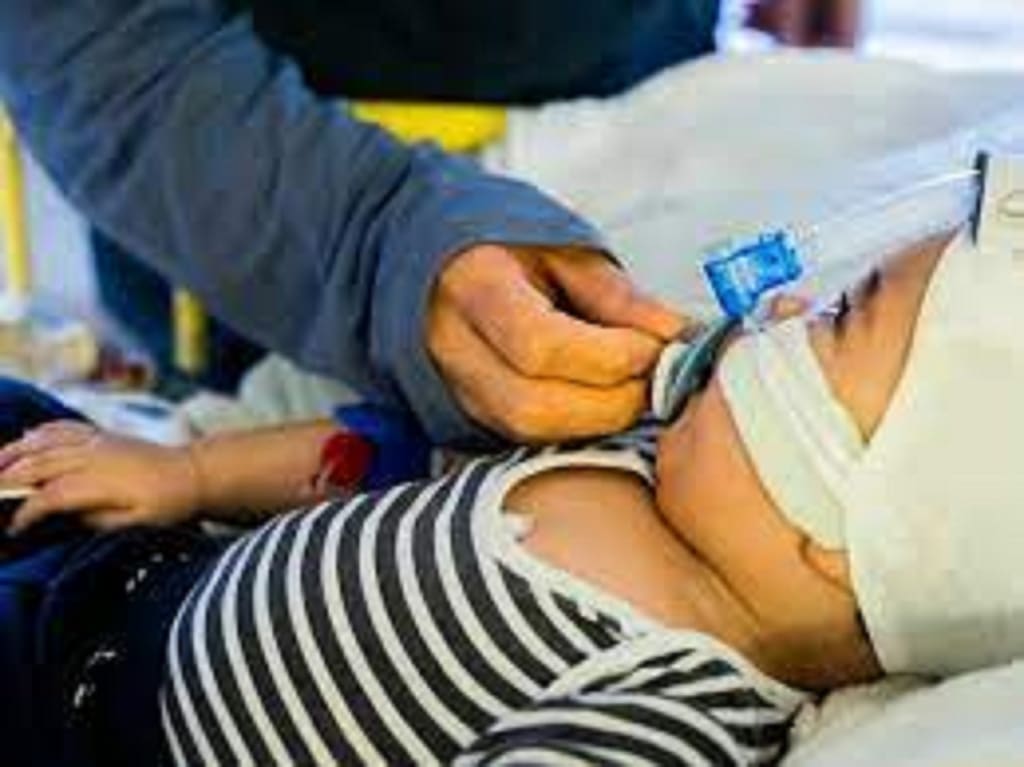As the first children to get the first FDA-approved RSV vaccine, Central New York twins make history.
That sounds like a significant milestone in the field of vaccine development and healthcare. Respiratory Syncytial Virus (RSV) is a common respiratory virus that can cause severe illness, particularly in young children and older adults. The development of a safe and effective RSV vaccine has been a long-standing goal of the medical community.

If Central New York twins have become the first children to receive an FDA-approved RSV vaccine, it means that the vaccine has undergone rigorous testing and has been found to be safe and effective in clinical trials. This is a significant achievement for the medical community and a promising development for the prevention of RSV infections.
It's essential to note that vaccines are an essential tool in preventing infectious diseases, and their development is a complex and time-consuming process that requires extensive research and testing. The FDA approval process ensures that vaccines are thoroughly evaluated for their safety and effectiveness before they are made available to the public.
Overall, the news of the Central New York twins receiving the first FDA-approved RSV vaccine is a positive development in the fight against RSV infections. It is a testament to the dedication and hard work of the medical community and provides hope for the prevention of this common respiratory virus. other promising developments in the prevention of RSV infection there are several other promising developments in the prevention of RSV infections. In addition to vaccines, there are several other approaches and strategies being explored to prevent RSV infections, including:
Monoclonal antibodies: Monoclonal antibodies are proteins that can be designed to target and neutralize specific viruses, including RSV. Several monoclonal antibodies are currently being developed and tested for their ability to prevent and treat RSV infections.
Antiviral drugs: Antiviral drugs are medications that can be used to treat viral infections, including RSV. Several antiviral drugs are currently being evaluated for their effectiveness in treating RSV infections.
Passive immunization: Passive immunization involves administering preformed antibodies to individuals to provide immediate protection against RSV. This approach is particularly useful for individuals who are at high risk of severe RSV infections, such as premature infants and older adults.
Maternal vaccination: Maternal vaccination involves vaccinating pregnant women to provide passive immunity to their newborns. This approach has shown promise in reducing the incidence and severity of RSV infections in infants.
In summary, while the development of an FDA-approved RSV vaccine is a significant milestone, there are several other promising developments in the prevention of RSV infections. Ongoing research and development in this area provide hope for the future prevention and treatment of RSV infections. antiviral drugs are currently being evaluated for treating RSV infections There are several antiviral drugs currently being evaluated for their effectiveness in treating RSV infections. Here are some examples:
Palivizumab: Palivizumab is a monoclonal antibody that is currently approved for the prevention of RSV infections in high-risk infants. However, it is also being evaluated for its effectiveness in treating RSV infections in hospitalized patients.
Ribavirin: Ribavirin is a broad-spectrum antiviral drug that has been used in the treatment of RSV infections. However, its effectiveness in treating RSV infections is controversial, and it is associated with significant side effects.
Nucleoside analogs: Nucleoside analogs are a class of antiviral drugs that target viral replication by interfering with nucleic acid synthesis. Several nucleoside analogs are currently being evaluated for their effectiveness in treating RSV infections, including ALS-8176 and lumicitabine.
Fusion inhibitors: Fusion inhibitors are a class of antiviral drugs that target the fusion process between the virus and host cells. Several fusion inhibitors are currently being developed and tested for their effectiveness in treating RSV infections, including TMC353121 and JNJ-53718678.
It's essential to note that while these antiviral drugs show promise in treating RSV infections, their effectiveness and safety in humans are still being evaluated in clinical trials. Therefore, more research is needed to determine their efficacy and potential side effects before they can be widely used for the treatment of RSV infections
About the Creator
abdo ebraheem
writer and translator






Comments
There are no comments for this story
Be the first to respond and start the conversation.